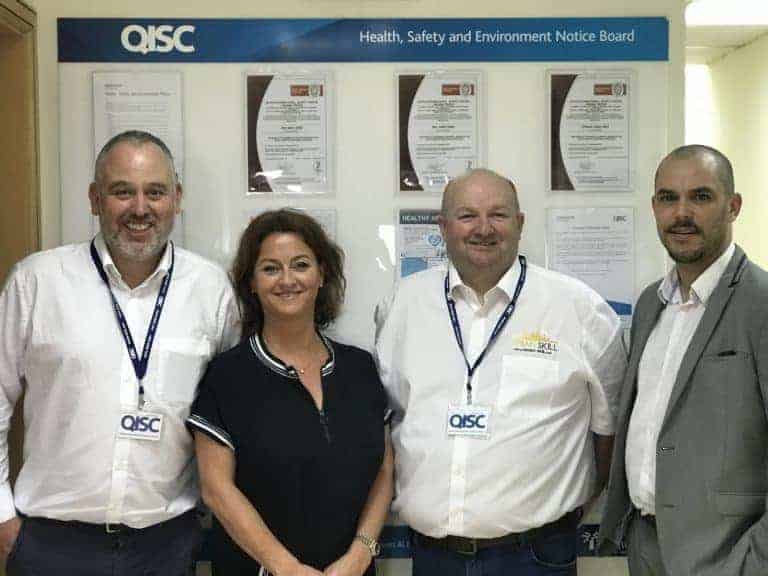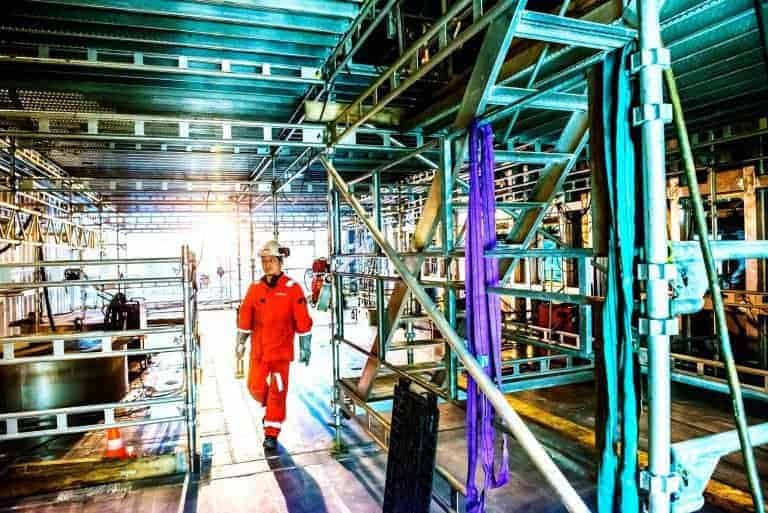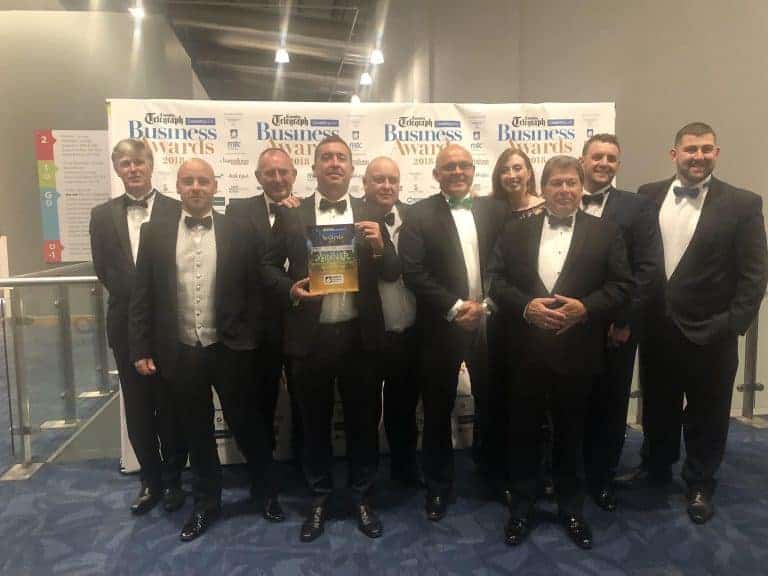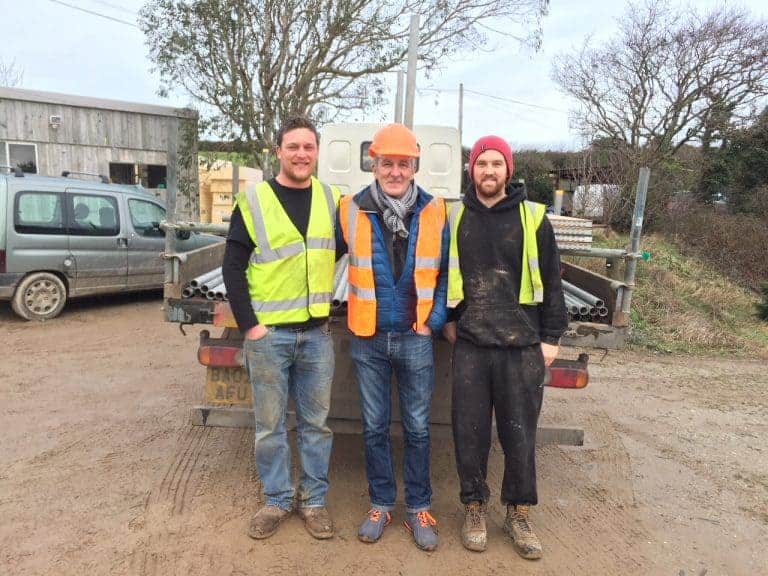First CISRS Approved Scaffolding Training Centre Opens In Doha
Interserve sells Scaffolding and Painting Division
Interserve has entered into an agreement to sell its industrial scaffolding and hard services business for £3.6m to Enigma Industrial Services Holdings Ltd.
The division being sold provides scaffolding services to housebuilders and other contractors as well as its SIP (Scaffolding, Insulation & Painting) services to large industrial sites.
Interserve says the £3.6 million purchase price is payable upon completion with the potential for a further cash injection of £1 million subject to the Business achieving certain financing targets for the financial years 2018 and 2019. The money from the sale will be used to reduce Interserve’s debt.
For the year ended 31st December 2017, Interserve Industrial Services Limited (IISL) reported an operating loss of £4m and had gross assets of £47.3m. The transaction will result in a loss on disposal of £8.4m for Interserve.
Together with the closure of IISL power activities earlier this year, this sale concludes Interserve’s exit from its industrial contracting activities.
Managing Director Scott Hardie holds on to his position and will continue to lead the business. Debbie White, Chief Executive Officer at Interserve said: “We are pleased to announce the sale of the access and hard services business as part of Interserve’s strategy to focus on core customer segments.”HAKI Scaffolding Unveils New Stair Chart
- HAKI Symmetrical Stair Tower, now in Mk2 revised format.
- HAKI Public (& Events) Access Stair Tower (PAS), released in 2018.
- HAKI Compact Stair Tower, updated in 2018. &
- HAKI Traditional Stair Tower.
- HAKI Twin Stair Tower.
Nuclear plant Hinkley Point C continues to power ahead
New photos and film footage released by EDF shows the scale and construction progress of the new nuclear power station.
The construction of Hinkley Point C began two years ago after the government signed a deal with French firm EDF and its Chinese partner CGN. More than 3,200 people are now working on the project in Somerset. EDF has said it would be a ‘significant moment and major milestone’ when a 4,500 tonne concrete platform supporting the reactor buildings was completed in 2019. The project is also setting its sights further ahead with preparation for the MEH phase (Mechanical, Electrical and HVAC – heating, ventilation and air conditioning). Yesterday (Thursday 27 September) four major UK contractors signed the “MEH Alliance” to work together on the complex installation of cabling and pipework in the power station’s 2,500 rooms. The innovative approach means that Altrad, Balfour Beatty Bailey, Cavendish Nuclear and Doosan Babcock will pool their expertise to work as a single entity. The alliance aims to create new industrial capacity and jobs by manufacturing specialist pipework in Britain. Hinkley Point C Managing Director, Stuart Crooks said: “Everyone working on the project should be proud of what they have achieved so far. Unions, contractors and suppliers are successfully working together with a complete focus on quality and safety. Innovation and experience from other projects is helping us boost productivity and get ready for the next stages. I am also proud of the positive impact that Hinkley Point C is having on the South-West. We are determined to create a positive legacy here for people, communities, jobs and skills.” The power station will supply the UK with reliable low carbon electricity to meet 7% of the country’s needs. The project is mobilised for an objective of initial delivery for unit 1 at the end of 2025.Video: Motorbike rider wiped out as scaffolding falls four storeys
The Mail reports the footage was captured on CCTV in the Sultanpet area of Bangalore, India. As the 38-year-old rider, known only as Chandan, rode to his office on August 31 the film shows how the piece of scaffolding knocks him out.
His helmet flies off and he falls to the floor while shocked onlookers rush to his aid.
The man was rushed to a local hospital. Despite the horrific accident, his condition is said to be improving under the care of hospital staff, who say that he is now out of danger.
Godiva wins sustainability award at Coventry Telegraph Business Awards
Godiva Access and Scaffolding was the proud recipient of the Sustainability award at last night’s (25 September) Coventry Telegraph Business Awards.
The Coventry Telegraph Business Awards aim to celebrate success, recognise achievement and highlight the innovative people and companies in Coventry and Warwickshire who are putting the region on the map by boosting the economy while making a positive contribution to the local community. Godiva was crowned the winner of the Sustainability Award in recognition of its commitment to making its processes more and more environmentally friendly year on year. Additionally, judges were impressed by how it had used sustainability to improve its performance and by the investments made into its products and services to make themselves more sustainable as a company. Karl De Groot, managing director at Godiva, said: “We are absolutely delighted to win this award. We have worked really hard to ensure our work is as sustainable as possible and this is something that takes the whole teams’ commitment to achieve. A huge congratulations to everyone who’s contributed to this success. “Thank you also to the Coventry Telegraph for hosting and to the Liberty House Group for sponsoring the award.” The event took place at the Ricoh Arena and was attended by hundreds of Coventry and Warwickshire’s business elite.Cornish scaffolding firm to feature on TV show ‘Grand Designs’
Cornish scaffolding company 7 Bays Scaffolding (SW) Ltd is set to feature on the popular Channel 4 Grand Designs television show.
The episode, which is due to air on Wednesday 26th September at 9pm, will showcase an impressive property in North Cornwall and the highly skilled tradesmen that helped to make the owners’ dream a reality. The ‘Padstow episode’ sees presenter Kevin McCloud follow the construction journey of a beautiful surf retreat near St Mawgan in North Cornwall. Owners Harry and Briony plan to build an ambitious steel and glass surf house which is inspired by The Ben Rose House which was famously featured in the cult 80s film, Ferris Bueller’s Day Off. 7 Bays Scaffolding (SW) Ltd was delighted to be selected as the scaffolding company to support such an ambitious project and see it to fruition. Company owner Adam Luce says, “We relish working on exciting build projects such as this. 7 Bays Scaffolding are experts when it comes to working on specialist scaffolding projects and architects recognise us as the ‘go to’ firm for scaffolding excellence. To have our work featured on a prestigious television show such as Grand Designs is awesome, and we can’t wait to see the show air on Wednesday!” Grand Designs is one of Channel 4’s biggest factual series and has grown into a global phenomenon with millions of viewers the world over.
Grand Designs is one of Channel 4’s biggest factual series and has grown into a global phenomenon with millions of viewers the world over. 










